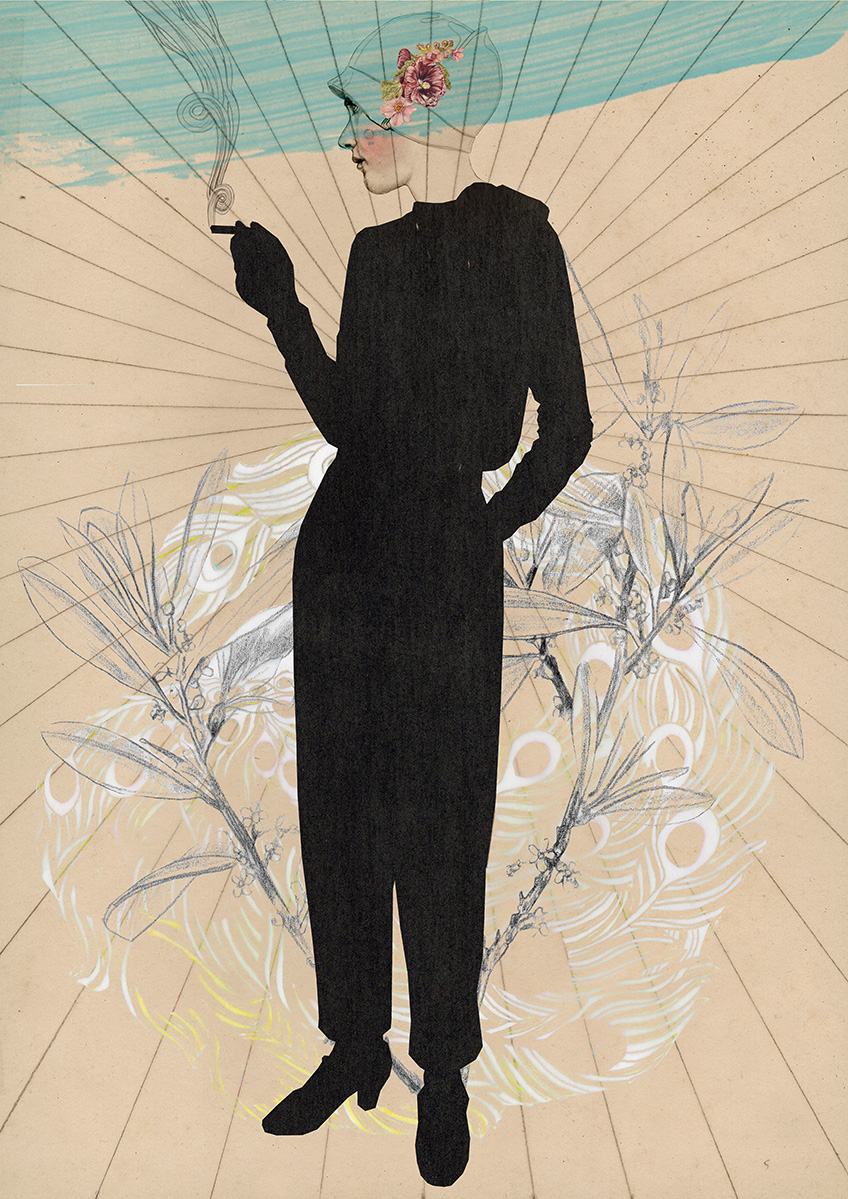
Doris von Schönthan
Doris von Schönthan | Model, copywriter, journalist, photographer
* 1905 in Worms as Maria-Dorothea Ehemann | + 1961 in Paris
Doris was one of the most vibrant characters in the Berlin art scene during the roaring twenties. A successful model, journalist and photographer, Doris was a self-confident and sexually liberated woman who lived a free and self-determined life. She embodied the spirit of optimism in the 1920s. Doris lived her life to the full, not only as a regular on the party circuit but also by making the best use of her professional potential. She surrounded herself with intellectuals and artists, counting the Mann siblings among her friends. In his diary, Klaus Mann described her as „a companion on my explorations of the boundary lines between self-awareness and self-destruction“. Both in astonishment and admiration for Doris, her friend Grete Weil called her “Cherub”. Doris was both fragile and gentle, as well as having an abundance of charisma and passion. She possessed an unusual kind of mental and emotional strength.

The writer Franz Hessel fell head over heels in love with her, making his adoration public through his ‘Doris Texts’ where he described her special „sensitivity that touches the soul of things“.
Those who dig a little deeper discover that Doris was much more than simply a glamorous bohemian. She was politically active and demonstrated loyalty, humanity, and civil courage during the Third Reich.
In a letter to Klaus Mann in 1933 she wrote: “It’s impossible to describe how bad things are in Berlin. The last of my friends are fleeing.” Alongside Elisabeth Hauptmann and Friedrich Wolf, Doris distributed anti-fascist leaflets in Berlin. She had the courage to stand by her left-wing intellectual friends and used her flat to provide refuge for people like Rudolf Olden who had to escape political persecution. As the Nazis gathered power, she outright refused to take on writing work that in any way supported their ideology. This made things so dangerous for her that she had to emigrate to France.
In Paris she fell in love and married the political activist and fellow German journalist Bruno von Salomon. They were both involved in the Front Populaire joining other exiled German immigrants in forming political alliances against fascism. At the start of the war, the couple were imprisoned and temporarily sent to separate internment camps. They later joined the resistance against Nazi occupation.
Doris and Bruno survived the war, but the continuous political struggle, going against the law, and years spent in exile took a toll. Following the death of her husband and an unsuccessful battle for financial reparations in Germany, Doris unsuccessfully attempted suicide and was left destitute and alone. She was both physically and psychologically shattered and became homeless. In the end, she lacked the strength and courage to live. Doris was broken by the Nazi regime, but her courage, commitment and humanity live on.